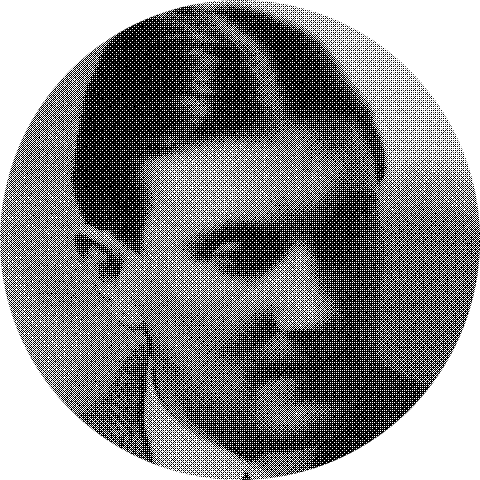Although if I really have to choose, it’ll be 2, but I’ll silently complain he whole time
Cadenza
Come with the great migration.
- 26 Posts
- 134 Comments
The present is now, old fella


 2·11 months ago
2·11 months agoMy pleasure, really! Ruth Morris and Kaba are, for me, the two insisting the most on the link between first nations practices of restauration and possible ways to start an abolitionniste strain from there, if you’re interested in these…
As for the movement in general, it started to grow in the 60’s. Mainly driven by professors of law and critical criminology, on the one side, prisoners movements and unions on the other side. A great deal of anarchists, a lot of religious people, a few moral radicalists. Many had a common experience of nazi camps. That may be too simple of an explanation, but some of them explicitly state that to account for their interest in prison and hatred for the penal system.

 1·11 months ago
1·11 months agoI don’t know the word “gatekeeping” well but maybe that’s it. I was specifically thinking about a situation I had to witness. Two men, one of them being my friend, celebrating about a political action that went well. Except one of the group, a woman, got caught and was facing prison charges. The two men started to rejoice about how the trial would be a great place for her to claim their ideas in front of the judges and the press, make it a political trial. All this time, the woman was literally trembling for a very good reason : she was afraid of going to jail, she didn’t want that.
This scene made me realize if there’s some kind of collective emancipation to be find somewhere it’s not in this kind of act of purety. People should do what they want and can at a certain point in their lives. Not me forced into becoming the martyrs they don’t want to be because it’s a good thing to do “for the cause”.

 1·11 months ago
1·11 months agoWait what does libertarian mean in English. Because with use two words, “libertaire” and “” libertarian" in French and although I’d gladly identify as the first, I have nothing but contempt for the second.

 4·11 months ago
4·11 months agoI would suggest this article as an introduction to penal abolition.
But, to sum some common abolitionist answers, I would say :
- Replace the penal system with an appropriately modified version of civil law (Hulsmann)
- Transformative justice (focus on the needs of the victim, apply peer pressure and other non segregative means of social control on the perpetrator, while taking in account the needs of said perpetrator) (Ruth Morris, Mariam Kana)
- Community mediation with a fallback segregative solution (Christie)
- Tackling the needs of the population to reduce violent crime (all of them)
- The list goes on and on! I can point you to other resources if you’re interested.

 129·11 months ago
129·11 months ago- Anyone who says ‘science doesn’t care about your feelings’ likely has a very limited understand of science
- There should be no prison but no penal system altogether
- Vote, don’t vote, do whatever the hell you want but don’t shove it into people’s face
- Aiming to be politically 100% pure and judging those who can’t be as pure boils down to chasing political activism cookies/elo. The only useful thing is doing one’s best.

 34·11 months ago
34·11 months agoI just realized that feelings are, in fact, facts. On what level, that would need to be determined.

Hmmm… I may skip this one. This one requires a… special mood I guess (upvoting though!)

 1·1 year ago
1·1 year agoLove this one. Used to teach students in political science about the horrible thing that “political ventiloquism” is.

 1·1 year ago
1·1 year agoIt’s beautiful and I can understand why it sticks… Thanks for letting us know!!

 1·1 year ago
1·1 year agoWell at least this may very well work as intended

 0·1 year ago
0·1 year agoPopular/Unpopular opinion : Lemmy is currently perfectly sized. The amount of altrighters and trolls one may encounter is low enough to make is a healthy network. Depending on the people leaving reddit, it might be a blessing… or a curse.

 1·1 year ago
1·1 year agoStealin that one properly!
When I read those, I consider myself lucky. I’m not handsome, normal sized, not athletic at all, not very sociable, closer to poor than rich, yet I never experienced any of those. Always had a few close friends and never have been single for more than 4 consecutive months since my 15th birthday. And I’m almost 40.
Is it a matter of luck? Of countries culture? Of type of schools/univ? Of social groups or generation ? I truly wonder.

 17·1 year ago
17·1 year agoI don’t understand a thing but I love your drawings! It’s a little joy every time there’s one in my feed.

 1·1 year ago
1·1 year agoFrench “au jour d’aujourd’hui” would like to know your position.
Translated literally, it would be, like… “At the day of at the day of today”
Au jour : at the day
Aujour : at the day
d’hui : of today
I like this conversation very much too. And I like the way you describe your will to volunteer and your conception of the steps ahead.
As for religions, I’m not certain. I can really like and admire people who live and love deeply something in the religious faith. Alone or with others. But communities… I’m not saying social control is bad in itself but this type of social control is rather frightening to me.
And changing… What a topic! Did you ever try to measure the time it takes you to change on a specific aspect? It’s a very strange yet reassuring experience. I used to do this a lot, a bit less nowadays, but for example, I’d write :
“learn to handle praise to be as kind as possible with others, understanding it as” somehow I kinda like something in you" and accept the kindness but be unsettled by the praise itself, or, better, make yourself truly incapable of understanding it as a praise"
in a notebook, because it was a very often present in my thoughts and then, after writing, forget about it. Let things unfold organically without giving it much thoughts. An indeterminate time later, I’d be praised for school performance, for example, and… somehow, in a way I couldn’t fully understand, I both felt I understood the praise and I didn’t really know what to make of it, all the sudden.
Then, a few weeks later, after processing the event, grab my notebook and write : “8 months”.
It’s quite interesting, and gives a little sense of : “Hmmm… this may take quite a time, but let’s see when/how/by which ways I’ll try to get there… or at least somewhere close!”
Thank you for your message!
I’ll try to answer as best as I can. My close friends and family sometimes mock me gently for my attitude, but overall, I think they’re happy with it. Even if they’re trying to help me learn about how to take breaks. I’m listening, but the translation process is quite long.
Being vulnerable with them is hard. But I’m trying my best. I think I’ve been doing it increasingly the last year but that’s never easy. It happens, now, though!
I really don’t think I hold them to these standards. And that’s 'it because they wouldn’t be worthy of these standard, making me a superior being. It’s just that… they have their own sets of standards. Mine are about, err… morals. Theirs can be about creativity, balance or anything else and it would be equally beautiful. Well, if they were terrible human beings, I don’t think we would be friends at all.
As for your last question, yes, I do… I think. I hold them to what I liked in them. Even if I admit people may change, even radically. I… yeah, there’s something in them that I loved. And that thing may very well change in it’s expression, but if at some point I feel it’s totally gone, I may have a hard time remaining friends with them. But I suppose most people react like that?
Regarding your thoughts, well… That’s a tough one.
But a really interesting one as well.
I’m not really sure… I suppose that may be my way to avoid being scared of death while I live ? Imagining the scene and just being like “Well, it’s okay if it ends now, I explored the way I’ve chosen in life as much as I could”. There may be something like that. I imagine it’s more… serene?
I’m not sure - but maybe I don’t see - what parts of life I would miss right now. Because I don’t think I’m… hmm… forbidding myself any specific path I would like to tread with these standards. Drugs? Certain types of illegal acts? Starting over in another country? Why not. Things I don’t want to do, though, like trying to dominate people, I could say I’m preventing myself from that, but really, that’s… contradicting all I want so strongly I’m not even sure who “I” is in this case.
Il not 100% sure about my answer, but your question about death was a very interesting one. And I really appreciate the way you framed it. Thank you!








Err, yeah, I get the meme and it’s quite true in its own way…
BUT… This research team REALLY need an ethics committee. A heavy handed one.